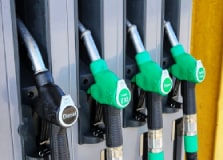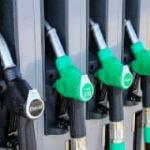The new E10 fuel became available across England, Scotland and Wales at the beginning of September 2021. With its release date in Northern Ireland set for early 2022. European countries have slowly been introducing it since about 2009.
 What is E10 fuel?
What is E10 fuel?
The new E10 contains up to 10% bio-ethanol compared to the existing E5 which only contains up to only 5%. The rest of the fuel is made up of regular unleaded. Bio-ethanol is gained from renewable sources which is why it’s become the new standard grade of petrol. It is considered an important step in the Department of Transports plans to reach net-zero carbon emissions in an effort to help tackle climate change.
THE SCIENCE BIT:
According to a report by the Department of Energy on “Phase Separation”, ethanol-based fuels hold more water.
What is “Phase separation” – This refers to the two states that the fuel has. The first phase is its initial mixed state and the second is when the oil and water separate.
They discovered that it takes E10 fuel three months longer than E0 for it to absorb enough moisture to separate out. But before Phase Separation can occur the E10 is already stale because of contaminates such as lacquers, varnish and gums contained within the fuel. If the fuel does get stale the engine becomes difficult to start and can cause misfiring.
Ethanol can easily retain water making it more corrosive, so if the vehicle is left unused it can cause damage to the fuel system.
It’s not for everyone!
- As a general rule vehicles registered before 2002 cannot run E10 fuel.
- Some vehicles up to 2011 are compatible.
- Vehicles registered after 2011 are mainly compatible.
- About 95% of vehicles can.
- Please check with your vehicle manufacturer or visit https://www.gov.uk/check-vehicle-e10-petrol for more information.
Reasons you should not use E10 fuel
- Vehicles that don’t regularly refuel and have low mileage are strongly advised against using E10.
- Vehicles that are kept in storage should definitely not use it and should stick with E5.
PROS
|
CONS
|
|---|
Can I convert my engine over to use E10?
Unfortunately, an engine cannot be converted to be able to use E10. This is because it can be corrosive in some engines. Though they are looking into creating kits in the future which may involve re-routing fuel lines.
We try help keep you informed about issues relating to your Toyota 4x4s so we hope you found this useful.
(Data from Forte and other online sources)
